Related Research Articles

George Hamilton-Gordon, 4th Earl of Aberdeen,, styled Lord Haddo from 1791 to 1801, was a British statesman, diplomat and landowner, successively a Tory, Conservative and Peelite politician and specialist in foreign affairs. He served as Prime Minister from 1852 until 1855 in a coalition between the Whigs and Peelites, with Radical and Irish support. The Aberdeen ministry was filled with powerful and talented politicians, whom Aberdeen was largely unable to control and direct. Despite his trying to avoid this happening, it took Britain into the Crimean War, and fell when its conduct became unpopular, after which Aberdeen retired from politics.

Sir Robert Peel, 2nd Baronet, was a British Conservative statesman who served twice as Prime Minister of the United Kingdom simultaneously serving as Chancellor of the Exchequer (1834–1835) and twice as Home Secretary. He is regarded as the father of modern British policing, owing to his founding of the Metropolitan Police Service. Peel was one of the founders of the modern Conservative Party.

The French colonial empire comprised the overseas colonies, protectorates and mandate territories that came under French rule from the 16th century onward. A distinction is generally made between the "First French Colonial Empire", that existed until 1814, by which time most of it had been lost or sold, and the "Second French Colonial Empire", which began with the conquest of Algiers in 1830. At its apex between the two world wars, the second French colonial empire was the second-largest colonial empire in the world behind the British Empire.

British North America comprised the colonial territories of the British Empire in North America from 1783 onwards. English colonisation of North America began in the 16th century in Newfoundland, then further south at Roanoke and Jamestown, Virginia, and more substantially with the founding of the Thirteen Colonies along the Atlantic coast of North America.

The secretary of state for the colonies or colonial secretary was the British Cabinet minister in charge of managing the United Kingdom's various colonial dependencies.

The Secretary of State for War, commonly called War Secretary, was a secretary of state in the Government of the United Kingdom, which existed from 1794 to 1801 and from 1854 to 1964. The Secretary of State for War headed the War Office and was assisted by a Parliamentary Under-Secretary of State for War, a Parliamentary Private Secretary who was also a Member of Parliament (MP), and a Military Secretary, who was a general.

The Secretary of State for War and the Colonies was a British cabinet-level position responsible for the army and the British colonies. The Secretary was supported by an Under-Secretary of State for War and the Colonies.

Frederick John Robinson, 1st Earl of Ripon,, styled The Honourable F. J. Robinson until 1827 and known between 1827 and 1833 as The Viscount Goderich, the name by which he is best known to history, was a British politician who served as Prime Minister of the United Kingdom from 1827 to 1828.
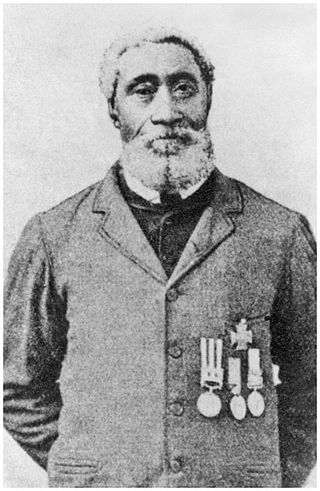
William Nelson Edward Hall was the first Black person, first Nova Scotian, and third Canadian to receive the Victoria Cross. He received the medal for his actions in the 1857 Siege of Lucknow during the Indian Rebellion. Hall and an officer from his ship continued to load and fire a 24-pounder gun at the walls after the rest of the party had been killed or injured by the defenders.
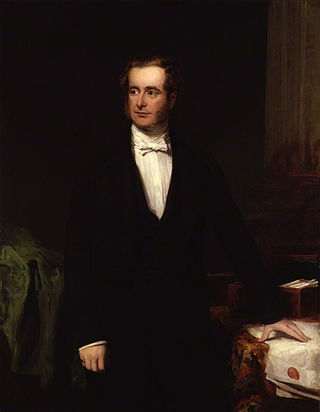
Henry Pelham Fiennes Pelham-Clinton, 5th Duke of Newcastle-under-Lyne,, styled Earl of Lincoln before 1851, was a British politician.

Edward Cardwell, 1st Viscount Cardwell, was a prominent British politician in the Peelite and Liberal parties during the middle of the 19th century. He is best remembered for his tenure as Secretary of State for War between 1868 and 1874 and, with William Ewart Gladstone's support, the introduction of the Cardwell Reforms. The goal was to centralise the power of the War Office, abolish purchase of officers' commissions, and to create reserve forces stationed in Britain by establishing short terms of service for enlisted men.

The colony of Canada was a French colony within the larger territory of New France. It was claimed by France in 1535 during the second voyage of Jacques Cartier, in the name of the French king, Francis I. The colony remained a French territory until 1763, when it became a British colony known as the Province of Quebec.
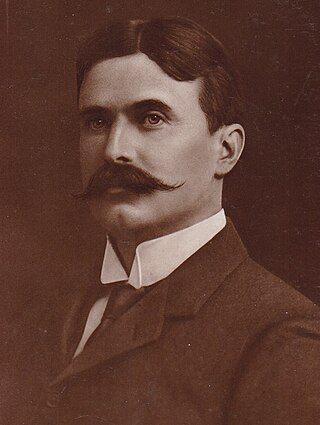
William Robert Wellesley Peel, 1st Earl Peel,, known as The Viscount Peel from 1912 to 1929, was a British politician, as a local councillor, a Member of Parliament and a member of the House of Lords. After an early career as a barrister and journalist, he entered first local, then national politics. He rose to hold a number of ministerial positions, but is probably best remembered for chairing the Peel Commission in 1936–37, which recommended for the first time the partition of the British Mandate of Palestine into separate Jewish and Arab states.
The position of Under-Secretary of State for War was a British government position, first applied to Evan Nepean. In 1801 the offices for War and the Colonies were merged and the post became that of Under-Secretary of State for War and the Colonies. The position was re-instated in 1854 and remained until 1947, when it was combined with that of Financial Secretary to the War Office. In 1964 the War Office, Admiralty and Air Ministry were merged to form the Ministry of Defence, and the post was abolished.
The Under-Secretary of State for the Colonies was a junior Ministerial post in the United Kingdom government, subordinate to the Secretary of State for the Colonies and, from 1948, also to a Minister of State.
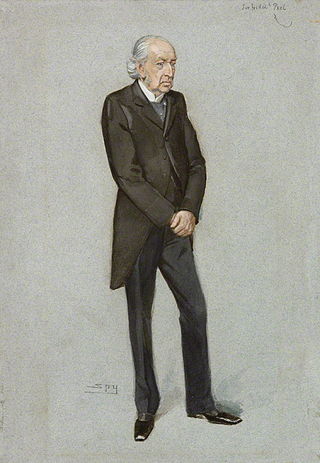
Sir Frederick Peel, was a British Liberal Party politician and railway commissioner.

The second Peel ministry was formed by Sir Robert Peel in the United Kingdom of Great Britain and Ireland in 1841.

John Stuart-Wortley-Mackenzie, 2nd Baron Wharncliffe FRS, was a British Tory politician. He served briefly as Under-Secretary of State for War and the Colonies between December 1834 and January 1835.
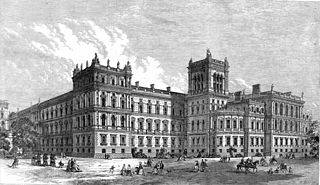
The Colonial Office was a government department of the Kingdom of Great Britain and later of the United Kingdom, first created to deal with the colonial affairs of British North America but required also to oversee the increasing number of colonies of the British Empire. Despite its name, the Colonial Office was never responsible for all Britain's Imperial territories; for example, protectorates fell under the purview of the Foreign Office, and British India was ruled by the East India Company until 1858, while the role of the Colonial Office in the affairs of the Dominions changed as time passed.
George William Hope, was a British Tory politician. He served as Under-Secretary of State for War and the Colonies under Sir Robert Peel from 1841 to 1846.
References
- ↑ Peel, Robert (1853). The Speeches of the Late Right Honourable Sir Robert Peel, Bart. Routledge. p. 30.
- ↑ Hannon, Kieran (2021). Designing and Dangerous Men. ISBN 9781922327932.
- ↑ Ontario History (vol. 38-40 ed.). Ontario Historical Society. 1946. p. 54.
- ↑ "Edward Smith-Stanley, 14th Earl of Derby". 17 December 2018.
- ↑ Rigney, Daryle (2008). "Letters patent, native title, and the Crown in South Australia".
{{cite journal}}: Cite journal requires|journal=(help) - ↑ Funnel, Warwick (1996). "Why 1886? Historical Notes on the Passage of the Exchequer and Audit Departments Act". Abacus. 32 (1): 102–110. doi:10.1111/j.1467-6281.1996.tb00453.x – via Wiley.